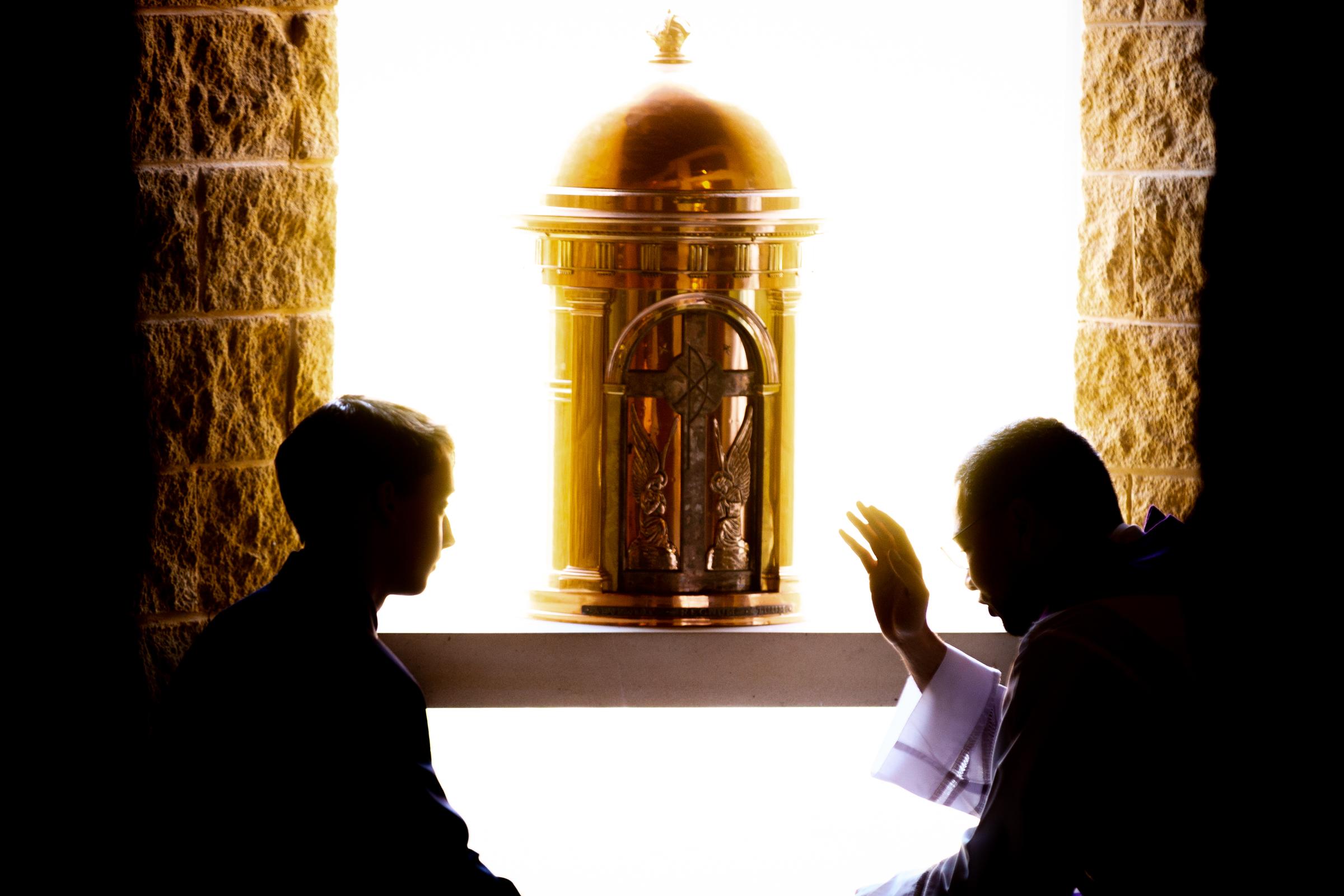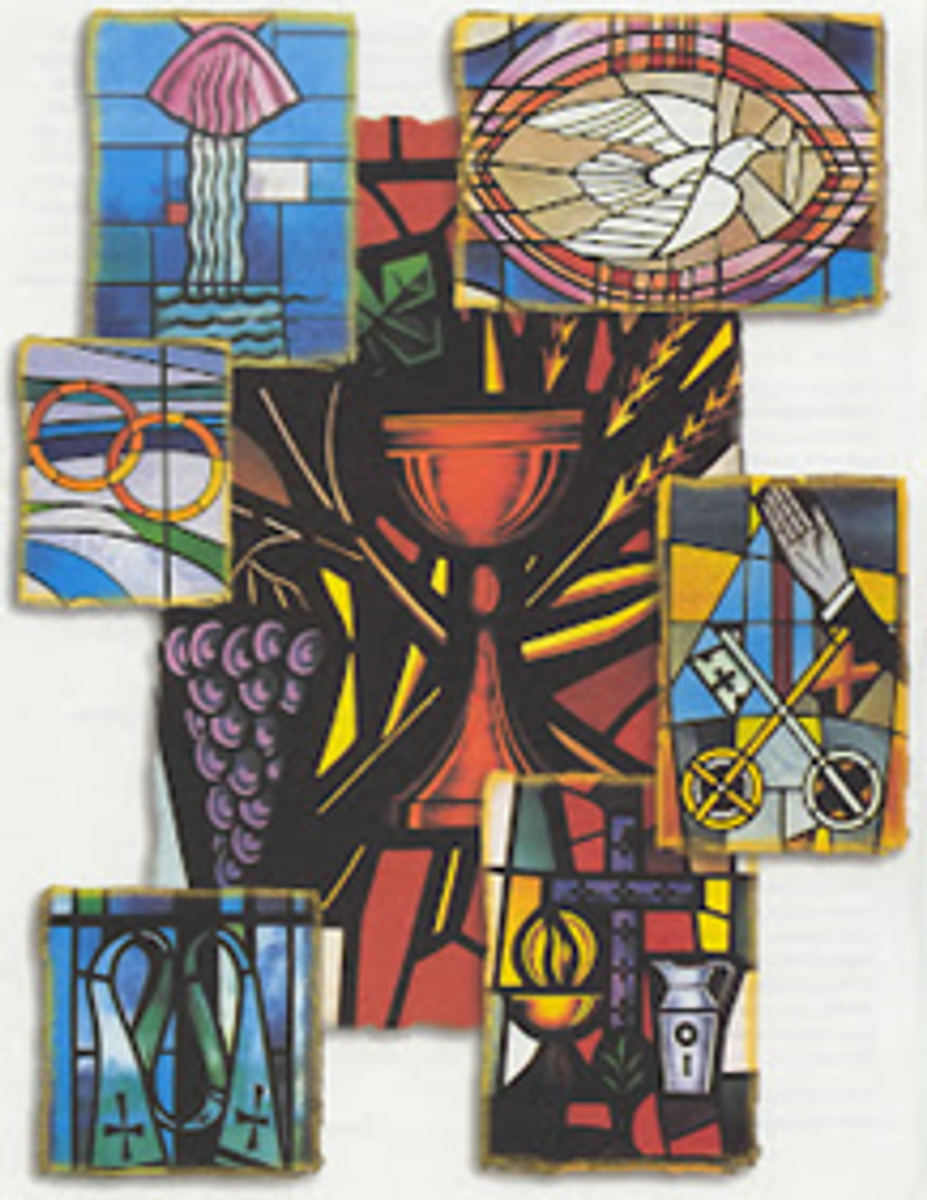Liturgy

Community Mass
Next Friday’s Community Liturgy will be prepared by students in Year 10. All families are welcome. Afterwards, there is coffee and conversation in the Circle of Friends Café.
Community Mass details
- College Chapel
- Fridays in term time
- Starts: 8:00am and concludes 8:30am
Sacrament Program
Parents with students in Years 2, 3 and 5
Parishes are now planning for celebrations of the sacraments in 2022. Parents are encouraged to enrol their child in their ‘home’ parish once enrolments open.
Subiaco
Enrolment information and contact details for the Sacrament Coordinator may be found here
If you would like further information about the Sacrament Program:
- If your nearest parish is not listed, search the Archdiocesan website;
- Check the information available on the College website here
- Contact Mary-Anne Lumley mary-anne.lumley@cew.edu.au 08 9383 0513
Good News for 31st Sunday in Ordinary Time
University of Notre Dame’s Joe Tedesco gives a lovey reflection for this week’s Gospel. Joe has been involved in tutoring and teaching theology for over ten years at the University of Notre Dame Australia and at the Centre for Faith Enrichment.
WHAT IS THE FIRST OF THE COMMANDMENTS?
What is made clear, [in the Gospel], is the eminence of ‘the greatest commandments’. The point is made through an exchange between and inquisitive scribe and Jesus. A simple question is put to Jesus: “what is the first of the commandments?” We assume here that the first and the greatest are synonymous, and in a sense they are. The unfolding exchange suggests as much.
LENS THROUGH WHICH WE SEE THE OTHER COMMANDMENTS
However, the use of a number matters, it is no accident. The disputation among the relative worth of the commandments was a major concern among Jews of the day. There were literally hundreds of decrees considered ‘commandments’ (the rabbis counted 613 from the Torah), and there was much deliberation on how, when and where one applied them. This led to debates on the relative value or order of importance that particular commandments had. The order mattered not only because it helped interpret their application when they might, for example seem to clash but, also, because the order provided a lens through which the others were seen.
Thus, the first commandment … places acknowledgment, love and devotion of God front and centre, the greatest of the commandments. Everything else is only going to make sense if this commandment is honoured and obeyed.
THE ‘CROWNING COMMANDMENT’
Those of us who are more steeped in the Christian tradition may sometimes get caught up in various disputations both public and private. We may see things differently from others and even bemoan how some part of our Church does not value one principle, teaching or practice as much as we think it should. Perhaps we wished people were more reverent in worship, perhaps we think that the Church does not pay enough attention to the poor, perhaps we feel certain teaching is being sidelined when it should be elevated and given more prominence, perhaps certain practices that seem antiquated need updating, or maybe we’re the opposite, sure that traditions long held are not being valued as they should. This goes along with wanting the best from and for the faith and is not inherently a bad thing. Further, there are times and places where it is appropriate that such concerns be drawn out. However, we are reminded here in this Gospel reading that any order and value we place on things always has a ‘crowning commandment’. Without it all else, regardless of how noble a notion it is, falls out of order or, to put it colloquially, goes ‘out of whack’.
THE QUESTIONING SCRIBE
Another important teaching found in this reading is learnt not from Jesus but from the scribe ... In the other synoptic gospels the scribe is seen to test Jesus, attempting to trip him up as it were. Here the scribe comes with admiration of Jesus and appears to be genuinely concerned with his opinion. By the end of the exchange the scribe is honoured by Jesus, pointing out that he is in fact “not far from the kingdom of God”.
HONEST QUESTIONING OF JESUS
Thus, we too, should have an attitude of honest questioning of Jesus – frank yet respectful, engaging and open to what Jesus has to say. Especially when we feel defensive of this or some other concern in our beliefs or practices, we might focus less on what we think and more on what Jesus has to say. Offering our thoughts and opinions to Jesus is a good thing no doubt (the scribe in this exchange does just this) , but respectful deference to Jesus’ teaching is always a good way to navigate any deliberation.
Returning to the ‘greatest commandments’ themselves, we notice that we are required to use the plural… The Scribe does not ask for the best two, or few, but which is the first. Jesus answers with one then, without pause, launches into ‘the second’; “You shall love your neighbour as yourself”. We might think, given that the order seems to be important, that Jesus is just pre-empting things a little, offering the next ‘cab off the rank’ so to speak. However, at the conclusion of the full answer offered by Jesus states that together these are the greatest commandments. The theological inference is well established but is still easily missed. We cannot love God and not have a love of neighbour and, concurrently, we cannot love our neighbour and not our God. We can only do both or neither.
Tedesco, Joe. "31st Ordinary Sunday - 31 October 2021." Pastoral Liturgy 51, no. 3 (2021): 1-5. https://researchonline.nd.edu.au/pastoral-liturgy/vol51/iss3/30


